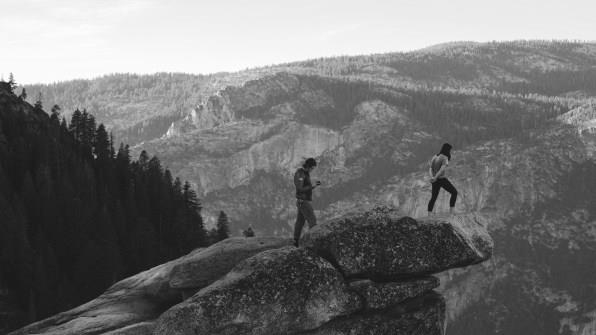The world’s largest adventure travel company is now a 100% carbon-neutral B-corporation
Intrepid Travel has been sending people around the world since 1988. They guide travelers cycling through Rajasthan, sailing to Phuket, hiking along the Inca trail, or scrabbling through the Australian outback. Over the past two years, though, Intrepid has been on a journey of its own. The world’s largest adventure travel company has just been certified as a so-called B-Corp, a for-profit company that works a bit like a nonprofit, meeting rigorous standards of social and environmental performance, accountability, and transparency. The new certification puts them in line with companies like Patagonia, Ben & Jerry’s, Seventh Generation, and other businesses that are defined by their social mission as much as by their products. The certification lets Intrepid “operate with a purpose beyond profit,” according to its CEO, James Thornton, allowing them to “grow the market for sustainable experience-rich travel.”
The new certification has been a goal for Intrepid since they broke up with Tui, a large multinational travel company, almost three years ago, over diverging ideologies. Like many people reeling in the wake of a break-up, Intrepid wanted to better themselves and re-focus on what they found important. Their new B-Corp status is the end result of a long drive to creating a travel company driven by an environmental and social mission. As Thornton says, “We fundamentally believe that business can be a force for good.” It’s working: Intrepid Group’s revenue has increased 17% in the past year.
The now independently owned company also runs the Intrepid Foundation, which last year gave more than $1 million a year to charities around the globe. And, as of July 1, they brought on board Leigh Barnes as the company’s first-ever Chief Purpose Officer, tasked with keeping the company on track and “growing with purpose,” as he says.
One aspect of Barnes’s new job is to look at the environmental impact of travel. A recent study says global tourism accounts for 8% of carbon emissions, around three times greater than previous estimates, because it includes the carbon emitted in tourists’ food, hotels and roads built for tourists, and souvenir shopping. While Intrepid has been completely carbon neutral since 2010, an admirable accomplishment, they know that purchasing carbon offsets is simply not enough. “We want people to travel, we think it changes the way you see the world and connects you to people,” say Barnes, “But we know that flights are one of the largest producers of carbon emissions. We are great at offsetting, but we need to get better at reducing our carbon footprint.”
“We want to be a leader from an environmental standpoint,” says Barnes. “It makes sense from a business perspective, too, because if there’s no environment, there’s no travel industry.” Intrepid is in a good position to lead: They carry more than 350,000 travelers a year on 2,000 trips in more than 120 countries on every continent around the globe.

Intrepid was also one of, if not the first, travel companies to ban elephant rides, drawing a line in the sand on animal cruelty that other groups have followed. Now they are looking at over-tourism, which can force out residents and frustrate locals, by designing new itineraries that help grow local economies without taxing communities and draining resources.
Part of Barnes’s new job is to continue developing community-based tourism projects that don’t “just inject cash and walk away” but instead focus on creating long-lasting, real value for local residents. For example, in one program the company works with World Animal Protection (WAP) on an elephant-conservation project that creates jobs for local workers, saves elephants, and gives Intrepid a new tour. “We’re finding that these programs help bring new money into the community and help create sustainable tourism practices that preserve wildlife.” They are hoping to launch three or four of these shared-value programs every year.
Intrepid isn’t just focused on their environmental impact, but on social impact, too. The company recently audited their own on-the-ground travel network, to make sure they were being inclusive and diverse with the locals they hire to lead tours. “It’s traditionally been a very male dominated role, especially in some of the places we travel, like India and Morocco,” says Barnes. The review made the company realize they had come up short in hiring women, and they set about fixing it. “Half of our leaders in India are now female,” says Barnes. “Our goal now as a business is to double the amount of female leaders by 2020.” Since Intrepid is the largest tour operator in India, this means they are also the largest employer of female tour leaders. “The more diversity we have in our leaders, the better the product,” says Barnes.
Barnes’s job also involves helping Intrepid’s 1,800 employees find their own purpose. “We know that people who work with purpose are happier in their jobs and achieve more,” he says. “We want them to have a purpose beyond a financial one, to be happy and passionate about why they come to work every day.”
To the cynics among us who think this is all nothing but marketing, Barnes says he strongly disagrees. “Purpose is something that has been part of our business since it started,” he says. “We’ve grown as a company and have seen what works and it just pays to do the right thing.”
(23)



